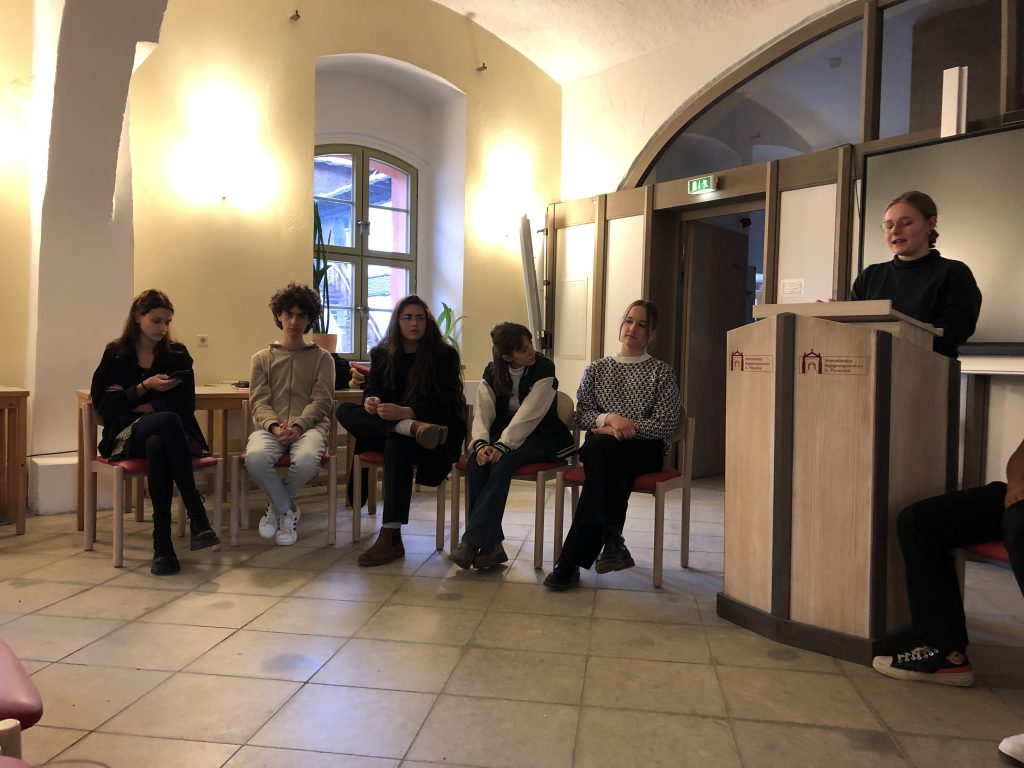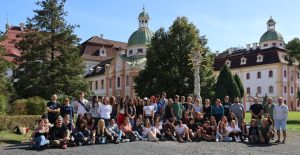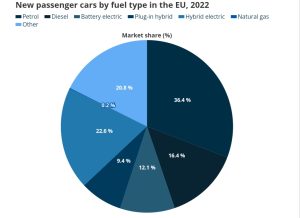Young students, from different European countries, faced each other in a debate and discussed the solutions for the crisis in Europe. There were a lot of students and a lot of opinions, some were on the optimistic side and some on the other. The participants who supported the European Union had some good points, but their opponents were not scared of the arguments and opposed them rather well.

One of the students talked about the separation of western and eastern Europe. He said: “We have to be grateful for the opportunity to be in the EU because it got involved in this particular crisis relating to the segregation of the eastern part of Europe, EU supported and helped us a lot to be recognized as human beings.” Then he spoke about the products that are now in the eastern European market thanks to the EU trade, since they are provided by other countries in the Union.
Mass culture is a problem that was addressed by some of the students. They were mentioning national values and how we are getting rid of them on purpose because of the Union. Many opposed this statement; they talked about benefits of the globalization. “Just because we work together and solve problems together doesn’t mean that we can’t keep our cultural identity and it doesn’t mean that our cultural identity isn’t important”, said one of the students.
Also, another student emphasized the importance of the main reason the EU was created in the first place; it was founded with the goal of benefiting all its members through splitting the wealth and ending the monopoly of powers; in addition, we have this Union to thank for maintaining the peace amongst all its members since its origins in 1945.
One of the participants stated, as an example, that, in her country (Spain), immigration was, in fact, necessary for the prevention of a severe demographic and economic crisis since it contributes to the maintenance of its sustainability and economic stability. The demographic problem is due to Spain’s predominantly aging population and declining in birth rate. As a result, the native labor force is greatly reduced, and the economy deteriorates.
The increase of foreign population helps to avoid the massive loss of inhabitants. According to the data provided by the National Institute of Statistics, even though they don’t exceed 12% of the population, foreigners contribute to the labor market with 70% of the assets. Consequently, it has been proven that if Spain hadn’t taken in immigrants, the active population of the country would have suffered a decrease of 2 million of possible workers since the year 2000.

Many students were admiring the solidarity of EU for looking after refugees from Ukraine, proving that the EU does not only care about the countries in it but also helps others when it is needed. The question is: would the EU help if the country was not a part of Europe?
Another topic that was talked about was the large number of internal problems that refrain the EU from focusing on outer problems. Some examples might be the lack of natural resources, the bureaucracy system that makes it harder to actually change anything, and the skepticism and reluctance towards the structure of the European Union manifested by northern countries. Moreover, it was also stated: “Diplomats of the European Parliament will always stand up for their countries´ interests. Of course, they will also think about other states, but only as long as their own country is not affected”.
The loss of relevance of the European Union in the world is another issue that was tackled. The speaker talked about countries like USA and China as examples of countries of greater economic importance nowadays. Nonetheless, the following idea was objected: “It is important to say that since the EU allowed opened trade, with basically no customs regulations, we were able to make up 22% of the world GDP. And that is something to be proud of!”
To draw a conclusion, a lot of people imply a lot of opinions, and we would like to highlight the abundance of respect and fellowship prevailing among all the European students, regardless of their different cultures, nationalities, identities and mentalities. This exchange of points of view was certainly enriching.



